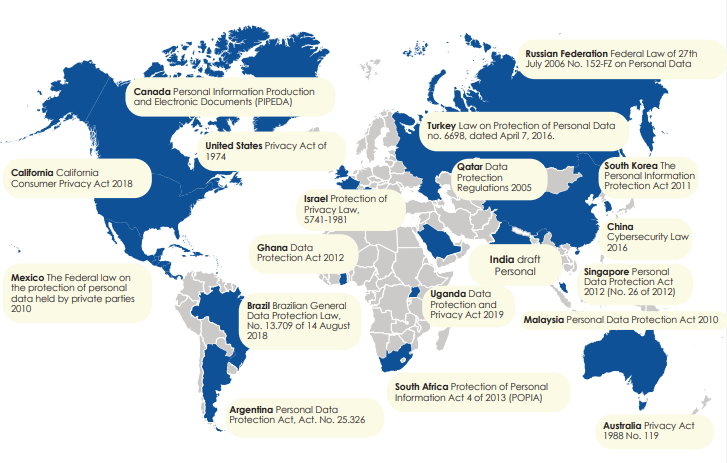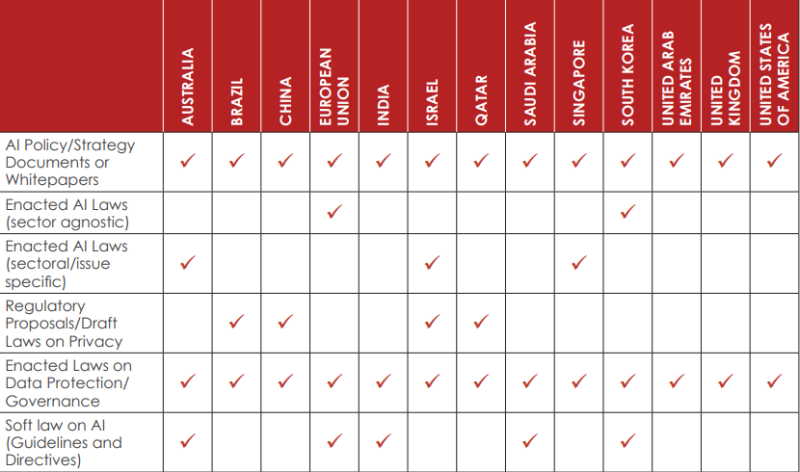To strengthen the discussion on how the geospatial industry could better harness the benefits of Artificial Intelligence (AI) and Machine Learning (ML) and contribute toward the economic growth and technological progress around the world in an inclusive and fair manner, the World Geospatial Industry Council (WGIC) put together a report entitled “Geospatial AI/ML Applications and Policies: A Global Perspective”. The publication was the result of desk research and interviews with WGIC members, complemented with opinion leaders, leading academia and technology visionaries.
Since 2013, Artificial Intelligence has become a popular field with great potential to change many different industries, including the geospatial industry. The authors state that “in the geospatial domain, a wide range of AI/ML use cases and opportunities emerge with great promise in terms of innovation, breakthrough efficiency gains and addressing previously unsolvable problems”.
Such progress will be possible through a newly emerging scientific discipline called GeoAI, which combines innovations in spatial science, AI/ML methods (such as deep learning), data mining, and high-performance computing to extract knowledge from spatial big data. Although GeoAI forms part of the “main” AI/ML field, it comes with its own characteristics, use cases and challenges. Focusing on real-world problems, GeoAI is expected to have a high and critical impact on society: for example, current use case cases range from creating automatic map dates to asset tracking and management. In the coming years, technological breakthroughs will enable more advanced use cases such as real-time applications as data can be processed and analyzed immediately after capture. However, experts say that such applications will not be available before 2030.
Apart from technological breakthroughs, the authors raise the question how AI/ML-based technology will be able to develop in a changing operating environment, or when competition and resources change. Experts point out the lack of sufficiently trained data scientists and engineers and uncertainty of the availability of public data sets shared by governments, which makes operating in this field challenging.
Such concerns serve as in introduction an overview of how governments are planning or have created AI-specific legislation: not only are governments aware of the potential of AI/ML for their economies and are already investigating heavily in AI from an R&D point of view, but AI-specific legislation would protect their citizens’ data privacy and regulate technological innovation when necessary.
Unsurprisingly, national governments do not want to miss out on AI/ML innovation and all over the world there are examples of sectors that have invested heavily in developing new technology and solutions, for sectors such as transport, healthcare, defense, and finance. There is currently less consensus among governments about the creation or even the need for legal frameworks regarding data privacy laws: the authors of the report thought it necessary to include this topic as AI/ML is foremost data-driven and therefore fully dependent on it. AI-specific legislation is almost non-existent: apart from South Korea, no country has created a legal framework for the use and creation of AI technology.

It is somehow not surprising that governments are not yet occupied with the legal implications of such novel technology as AI. In the Appendices section of the report, more information is found on the complexity of what an AI product exactly is and how it can be monetized, where and how. GeoAI only complicates this matter even more, as geospatial data is tied to a specific location and can therefore not be applied to an AI-based solution in another country or part of the world (the same goes for generalizing any AI-based model). This also raises another concern stated in the report by an anonymous expert that the expectations of AI models and technology are too high from the part of the user, whether that user is a company or policy maker: outside the academic world, there is a lack of knowledge and understanding of what AI/ML is and what it can and cannot do (yet).

Answering the question how the geospatial industry can best harness the benefits on Artificial Intelligence and Machine Learning and contribute toward the economic growth and technological progress around the world in an inclusive and fair manner, the authors have formulated a set of recommendations to policy makers worldwide as to grant different stakeholders of the GeoAI community access to resources, maximize the benefits of AI for society as a whole while minimizing its potential risks. Apart from that, they have formulated a set of AI policy principles for self-governance in the geospatial industry. For example, by building norms for ethical use of AI, customers, policymakers, and citizens at large, will have strong reasons to trust the geospatial industry when developing AI-based solutions.
The report can be downloaded from the WGIC here.






